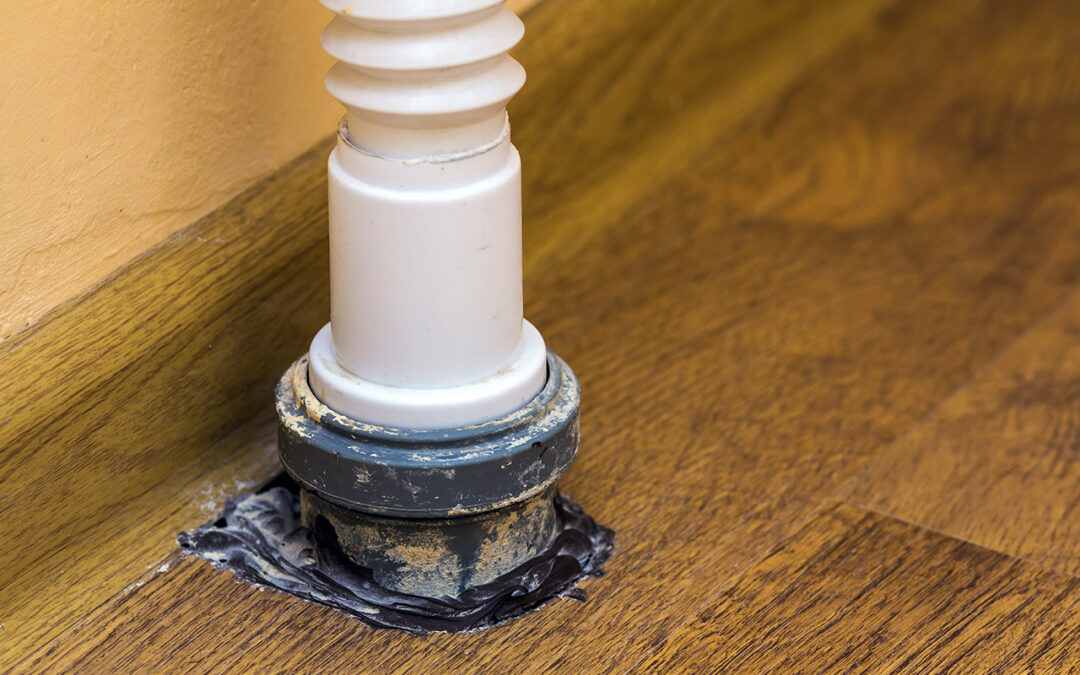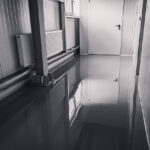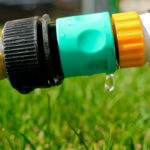Top 10 Hidden Signs of Water Leaks At Home You Shouldn’t Ignore
Water leaks can be sneaky and cause significant damage before you even realise there’s an issue. From unexpected spikes in your water bill to musty odors, these signs often go unnoticed until it’s too late. In this article, we will explore the top 10 hidden signs of water leaks at home that you shouldn’t ignore, the risks associated with them, and the preventive measures you can take.
Why Water Leaks Are a Big Deal
Water leaks might seem like a minor inconvenience at first, but they can lead to major problems if left unchecked. The damage caused by water leaks isn’t always immediate and can develop slowly over time, resulting in both structural damage and health risks.
Structural Damage
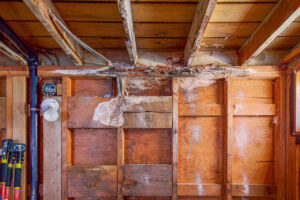 One of the most severe consequences of water leaks is structural damage. Water has a way of seeping into every nook and cranny, weakening the structural integrity of your home. It can damage walls, floors, and ceilings, leading to warping, staining, and even collapse in severe cases. Over time, the constant presence of moisture can erode building materials, causing extensive and costly repairs.
One of the most severe consequences of water leaks is structural damage. Water has a way of seeping into every nook and cranny, weakening the structural integrity of your home. It can damage walls, floors, and ceilings, leading to warping, staining, and even collapse in severe cases. Over time, the constant presence of moisture can erode building materials, causing extensive and costly repairs.
Health Risks
Beyond the physical damage to your home, water leaks can also pose significant health risks. Moist environments are breeding grounds for mold and mildew, which can spread quickly and release spores into the air. These spores can cause respiratory problems, allergies, and other health issues, especially in individuals with pre-existing conditions. Addressing water leaks promptly can prevent these health risks and create a safer living environment for you and your family.
The Silent Culprits: Hidden Signs of Water Leaks
Water leaks are often insidious, creeping up on homeowners without obvious signs. Detecting these hidden culprits early can save you from a lot of trouble and expense. Here are the top hidden signs of water leaks that you should never ignore:
Unexplained Increase in Water Bill
 One of the first signs of a hidden water leak is an unexplained increase in your water bill. If your usage habits haven’t changed but your bill has skyrocketed, it’s time to investigate. Leaks can waste a significant amount of water, leading to higher costs. Keep an eye on your water meter and monthly statements to spot any unusual spikes that could indicate a problem.
One of the first signs of a hidden water leak is an unexplained increase in your water bill. If your usage habits haven’t changed but your bill has skyrocketed, it’s time to investigate. Leaks can waste a significant amount of water, leading to higher costs. Keep an eye on your water meter and monthly statements to spot any unusual spikes that could indicate a problem.
Musty Odor
A persistent musty smell in your home is often a sign of hidden water leaks. This odor is typically caused by mold and mildew growth in damp areas. If you notice a musty smell that you can’t seem to get rid of, it’s essential to investigate further. Check under sinks, behind appliances, and in other hidden areas for signs of moisture.
Mold and Mildew
Visible mold or mildew, especially in areas that aren’t regularly exposed to water, is a clear sign of a leak. Mold and mildew thrive in damp environments, so if you see these fungi in unexpected places, there’s likely a hidden moisture source.
Preventive Measures and Solution
While it’s critical to address any water leaks as soon as they are discovered, implementing preventive measures can significantly reduce the likelihood of leaks occurring in the first place. Here are additional strategies to safeguard your home:
Monitor Water Pressure
High water pressure can strain your plumbing system, increasing the risk of leaks. Ensure your water pressure stays within safe limits (typically 40-60 psi). You can use a pressure gauge to check this. If the pressure is too high, consider installing a pressure regulator to maintain it at a safe level.
Insulate Your Pipes
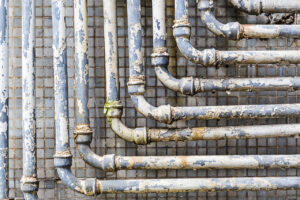 In colder climates, freezing pipes can burst and cause significant water damage. Insulating your pipes, especially those in unheated areas like basements and crawl spaces, can prevent them from freezing and bursting during cold weather.
In colder climates, freezing pipes can burst and cause significant water damage. Insulating your pipes, especially those in unheated areas like basements and crawl spaces, can prevent them from freezing and bursting during cold weather.
Upgrade Old Plumbing
Older homes often have outdated plumbing systems that are more prone to leaks. Consider upgrading old pipes, especially if they are made of materials like galvanized steel, which can corrode over time. Modern materials like PEX and copper are more durable and less likely to develop leaks.
Landscape Smartly
Poor landscaping can lead to water pooling around your foundation, increasing the risk of leaks and structural damage. Ensure your yard slopes away from your home to direct water runoff away from the foundation. Avoid planting trees and shrubs too close to your house, as their roots can damage underground pipes.
Use Water Softeners
Hard water can cause mineral buildup in your pipes, leading to corrosion and leaks. Installing a water softener can reduce mineral buildup, extending the life of your plumbing system and reducing the risk of leaks.
Implement Routine Maintenance
Routine maintenance is key to preventing leaks. This includes checking for signs of wear and tear on hoses and connections, ensuring that faucets and showerheads are not dripping, and verifying that toilets are not running continuously. Regularly cleaning your gutters and downspouts can also prevent water from backing up and causing leaks.
Utilise Smart Technology
Smart home technology offers advanced solutions for leak detection and prevention. Devices such as smart water valves and sensors can monitor your water usage in real-time, detect irregularities, and shut off the water supply automatically if a leak is detected. These technologies can provide an extra layer of protection and peace of mind.
Install Sump Pumps
In areas prone to flooding, installing a sump pump can help protect your home from water damage. Sump pumps are designed to remove water that accumulates in a basement or crawlspace, preventing it from causing leaks and damage. Ensure your sump pump is maintained regularly and has a backup power source in case of power outages.
Check Appliance Connections
Appliances like washing machines, dishwashers, and refrigerators with ice makers are common sources of leaks. Regularly check the hoses and connections on these appliances for signs of wear or damage. Replace old or damaged hoses with high-quality, durable ones to prevent leaks.
Use Catch Pans
Placing catch pans under appliances that use water, such as washing machines and water heaters, can help contain leaks and prevent water damage to your floors. While not a complete solution, catch pans can buy you time to address the leak before it causes significant damage.
Educate Your Family
Ensure everyone in your household knows how to shut off the water supply in case of an emergency. Educating your family about the signs of water leaks and the importance of prompt action can help prevent minor leaks from turning into major problems.
Conclusion
Water leaks, if left untreated, can lead to significant structural damage and health risks. By staying vigilant and addressing the hidden signs of water leaks, you can protect your home and ensure a safe and healthy living environment. Regular inspections, professional plumbing services, installing leak detectors, and taking preventive measures are all effective ways to prevent water leaks and mitigate their impact. Being proactive and addressing issues as soon as they arise can save you from extensive damage and costly repairs, ensuring your home remains a safe and comfortable place to live.
FAQs
How can I tell if I have a hidden water leak?
Look for unexplained increases in your water bill, musty odors, visible mold, water stains, and damp spots. These are common indicators of hidden leaks. Regularly inspecting your plumbing system and monitoring your water usage can help you detect leaks early.
What should I do if I find mold in my home?
Address the source of the moisture immediately. Clean the mold with appropriate cleaning agents and consider hiring a professional for extensive mold growth. It’s important to wear protective gear and ensure proper ventilation when dealing with mold to prevent health risks.
How often should I have my plumbing inspected?
It’s recommended to have your plumbing inspected annually by a professional to catch and address any potential issues early. Regular inspections can help you maintain your plumbing system and prevent costly repairs.
Can small leaks cause significant damage?
Yes, even small leaks can lead to significant damage over time. They can cause structural damage, promote mold growth, and lead to high repair costs. Addressing leaks promptly, no matter how minor they seem, is crucial to protecting your home.
What are the costs associated with fixing water leaks?
The cost varies depending on the severity and location of the leak. Minor repairs might cost a few hundred dollars, while major repairs could run into thousands. Investing in regular maintenance and addressing issues early can help you avoid more extensive and expensive repairs in the future.
If you think you have seen any of the hidden signs of water leaks in your home, click the button below to book and inspection today.
